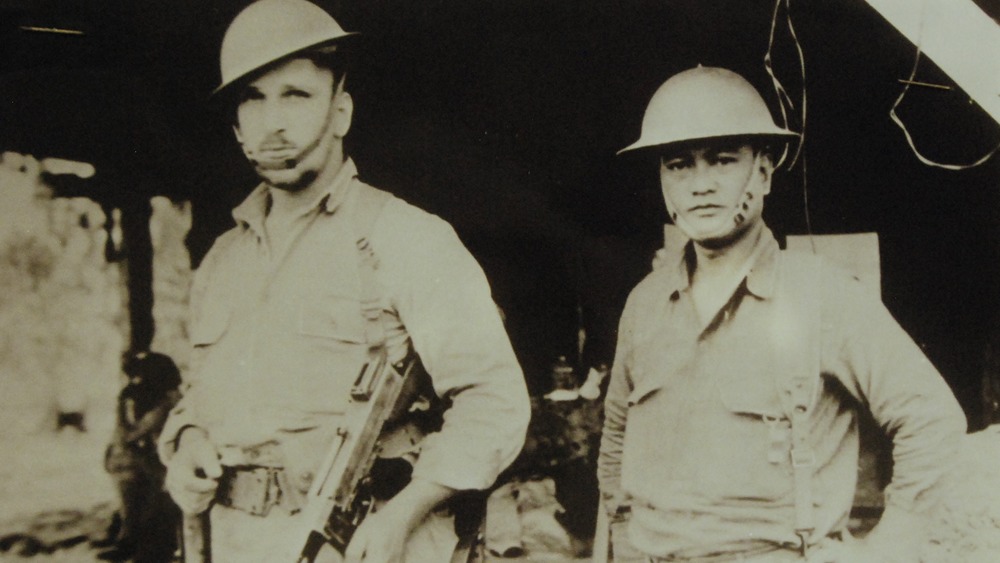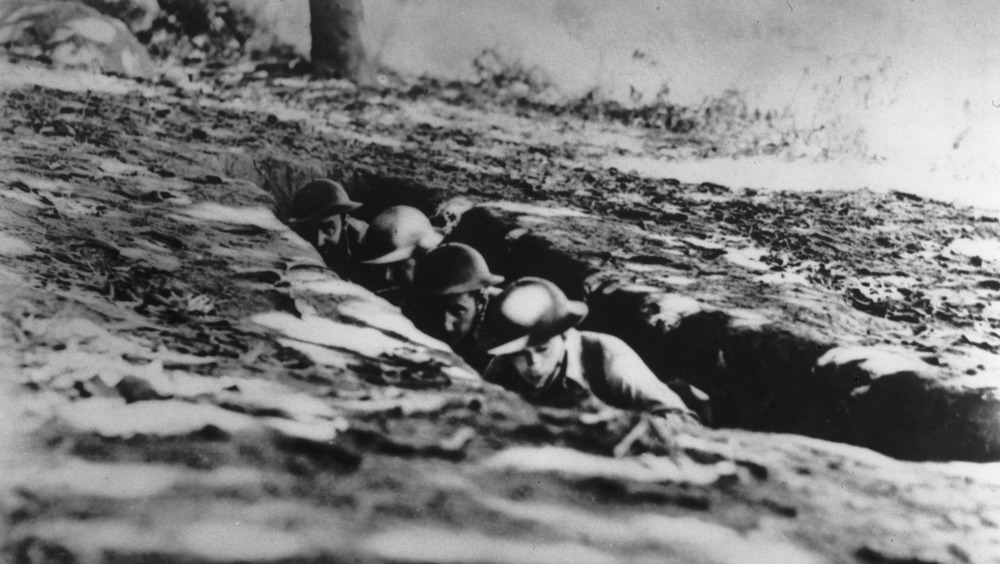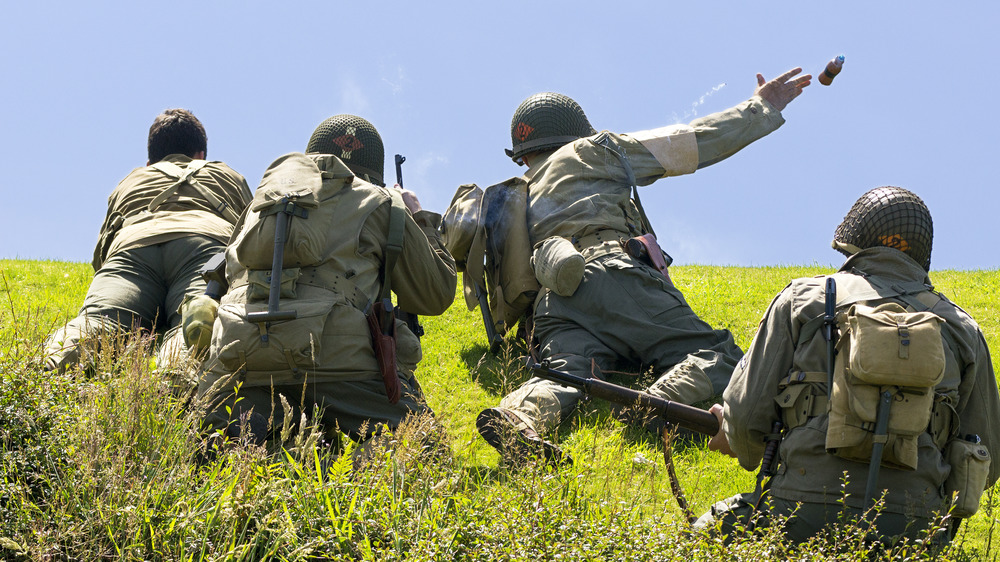The Truth About World War II's 'One-Man Army Of Bataan'
World War II is possibly the most popular war among history buffs. It was a turning point in world history, the last major fight against the rise of fascist governments. Technological advancements both good and bad were developed for the war, entire nations were redefined, and, according to Lumen Learning, somewhere around 75 million people lost their lives.
Even though WWII marked numerous tragedies in the history of humankind — the Nazis' extermination camps, the invention of the atomic bomb, the slaughter of millions of civilians as well as soldiers — the war also was a time for heroes. Everyday folks stepped up, putting their life on the line to fight tyranny in a number of different ways. Some snuck persecuted Jews away from the genocidal grip of the Nazis. Others joined manufacturing operations to provide soldiers with necessary equipment and supplies. And then there were those otherwise ordinary folks who single-handedly inflicted enormous numbers of casualties on the enemy. Among the latter was the "One-Man Army of Bataan," Captain Arthur W. Wermuth.
Wermuth's early life was nothing special. His father was a former WWI colonel, and Wermuth was a decent football player, but that's about it. The exciting points of Wermuth's life didn't come until he joined the Army in 1936, and even then, Wermuth wouldn't see active duty until 1941, according to Alchetron.
Earning his title
With the Japanese invasion of the Philippines underway, Wermuth was shipped out to serve in the 57th Infantry Regiment, a unit comprised mostly of Filipino citizens. That's when the "One-Man Army of Bataan" would earn his nickname among his peers. Wermuth ran with a group of counter-snipers who took out over 500 enemy soldiers, while only losing 45 of their own, in a three-week period during the Battle of Bataan, a fearsome struggle over the Bataan Peninsula. The best of these extraordinary soldiers was Wermuth, who is credited with 116 kills — one of the highest kill counts in the war, and he managed to get his numbers in only a few weeks. It's safe to say he was among the deadliest Americans in the conflict.
Captain Wermuth's skill with a .45 caliber Thompson submachine gun definitely attributed to the high number of enemy soldiers this "One-Man Army" took down, but his ruthless efficiency was driven mostly by his courage. Or was it insanity?
Was it courage or insanity?
According to a 1942 Life Magazine article, Wermuth had a thing for collecting "trophies" from the Japanese soldiers he'd killed, and would go above and beyond to get them. At one point, the publication recalls, Wermuth and his scouts came across a group of horses. The scouts determined that these weren't friendly horses, but rather belonged to the Japanese. What does Wermuth do? He walks up to the animals, unties them, and slaps them on the rear so they'll take off running and neighing. When the three cavalrymen who owned the horses popped their heads up to see what was going on, Wermuth killed them.
In another altercation, as described in Col. Virgil Ney's Notes on Guerrilla War, Wermuth took it upon himself to burn down a village that was under Japanese control. And, when we say "upon himself," we mean he did it by himself. The courageous soldier crawled past his enemies while carrying two five-gallon cans of gasoline to reach the village. Once there, he politely distributed the gas to the patiently waiting shacks before flicking a lit match and running.
The "One-Man Army of Bataan" got hurt several times in his fight against the Japanese. In January 1942, he was shot in the leg. In early February, Wermuth took a bullet to the left side of his chest. He survived, and about two weeks later, against medical advice, the "One-Man Army" rejoined the fight.
Wermuth was captured by the Japanese
Fate, being a big fan of irony, made his next injury the one that counted. In April, Wermuth took a tumble down a ravine where he was stopped abruptly and knocked unconscious by a boulder. When he came to, according to Alchetron, he was a prisoner of war.
The hospital Wermuth was being treated at had been overrun by the enemy. The soldier would find himself shuffled around between military prisons, hospitals, and labor camps for the next three years until he and other POWs were saved by the Russians and sent home to claim several Purple Hearts and the Distinguished Service Cross. He was skeletal, having lost around 85 lbs. during captivity.
Don't think that Wermuth was an easy captive, because he wasn't. At one point during his imprisonment, he was part of a detail forced to build a runway where bombers would land, and he and the guys sabotaged it on purpose, causing it to collapse under the weight of a landing plane. The "One-Man Army" lived up to his name, even as a captive.
Then there was his post-war career in law enforcement, which at one point included arresting L. Ron Hubbard, the founder of Scientology. But that's another story.



